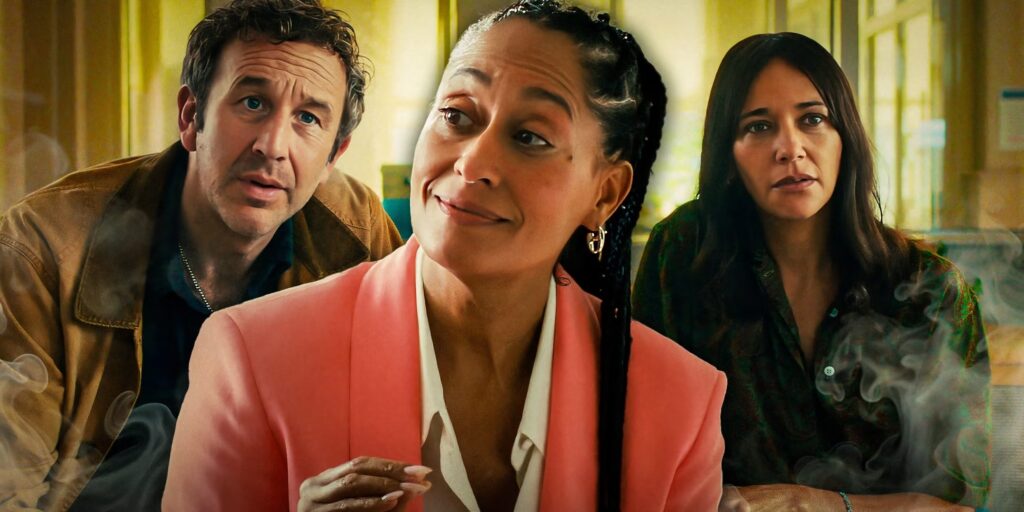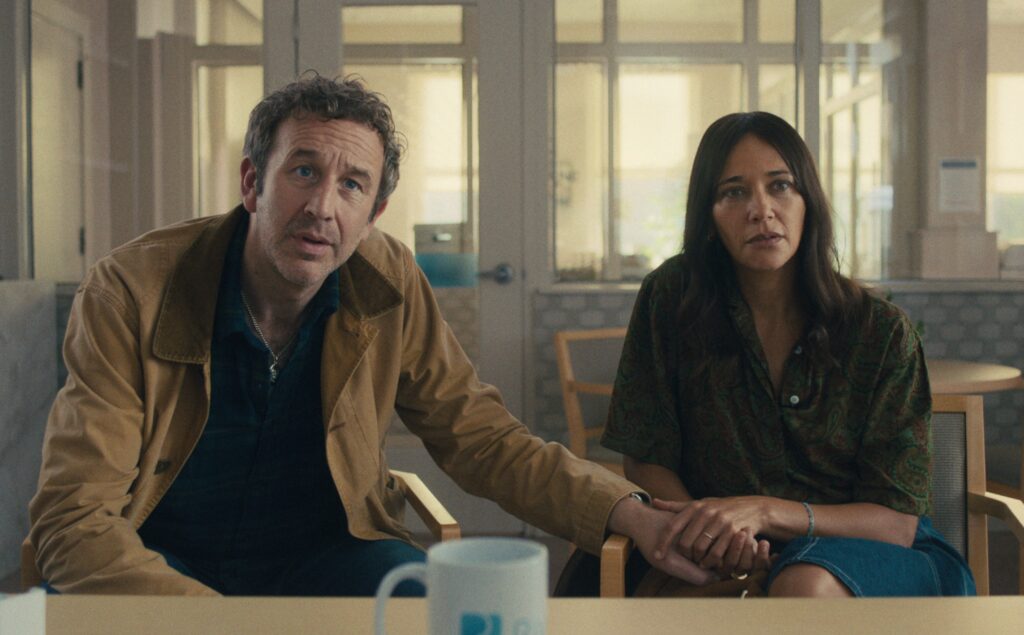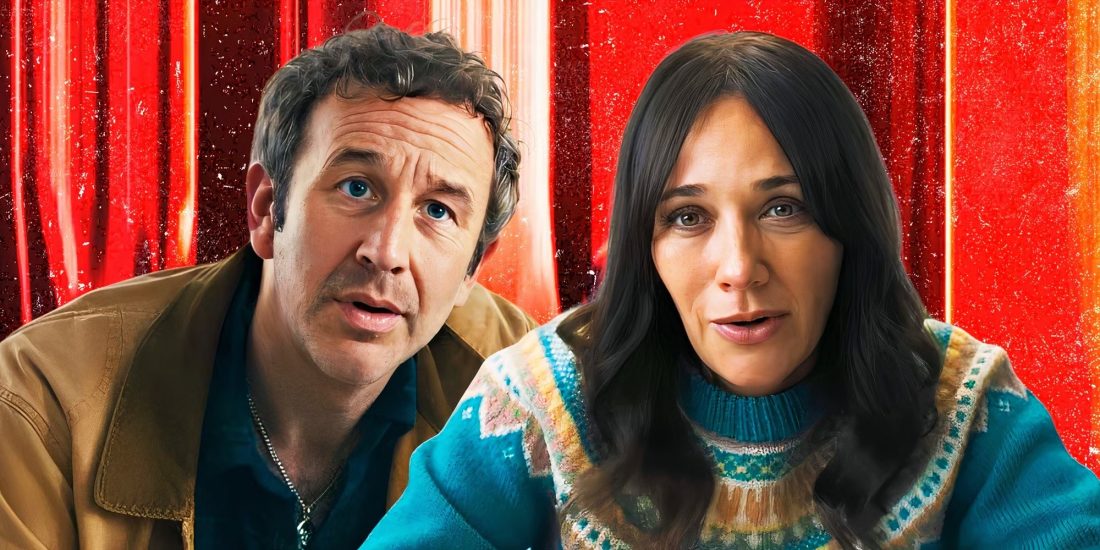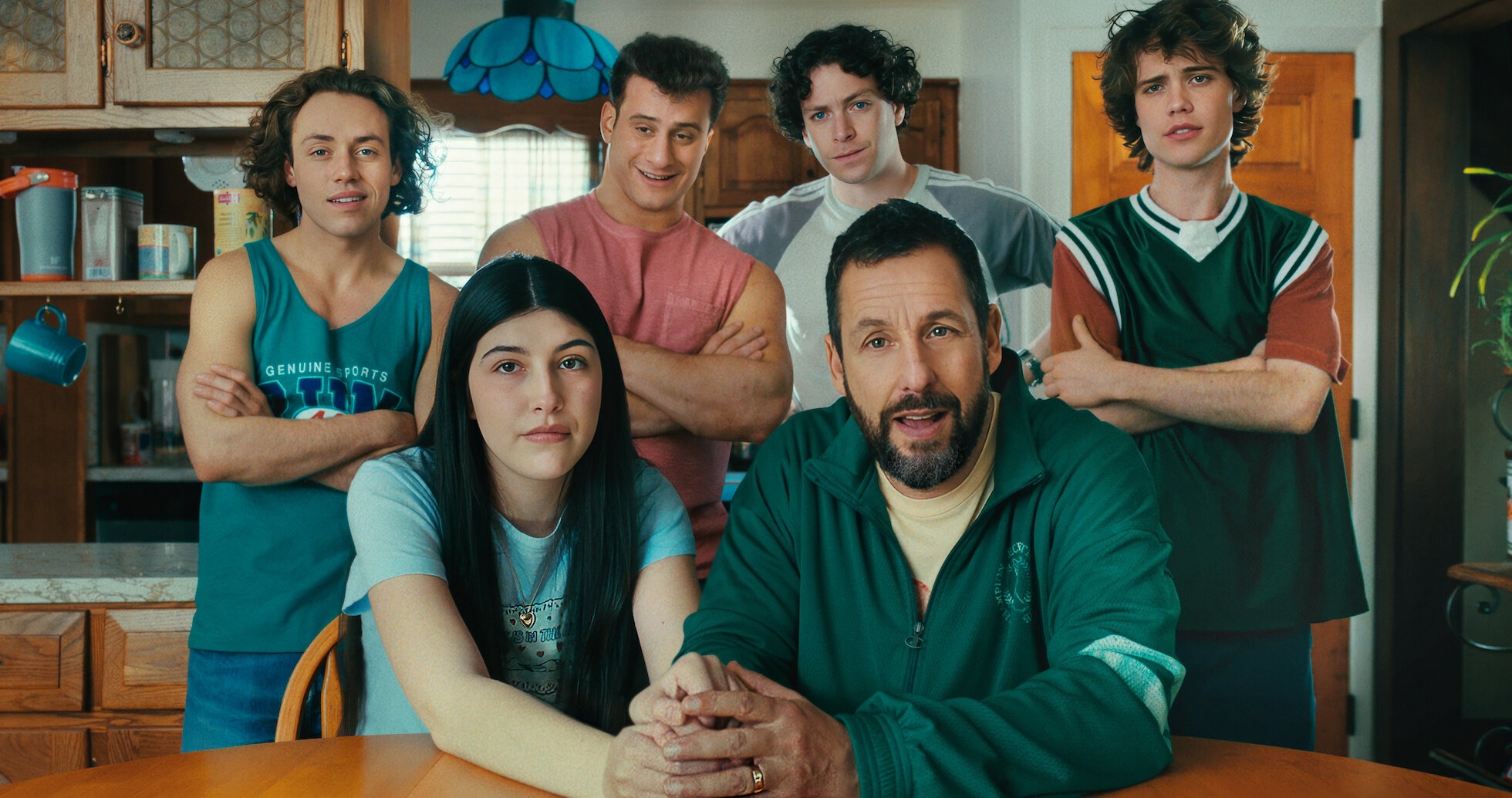Why She Fought to Be Part of the Black Mirror Universe
Rashida Jones has long been a self-professed superfan of Black Mirror. When she first discovered the U.K. series in 2011, she went out of her way to get in touch with creator Charlie Brooker.
That connection ultimately led her to co-write the acclaimed season three episode “Nosedive.” Now, nearly a decade later, she returns—not behind the scenes, but as a star of season seven’s “Common People.”

“It was a really nice surprise to just get an offer,” Jones says of her casting as Amanda Waters, a teacher whose life is altered by a dystopian health app called Rivermind. “It was a challenge in a way because it was a lot of things that I’ve never done before as an actor.”
Playing a Woman Reduced to a Subscription Plan
In “Common People,” Rashida Jones delivers one of her most complex performances to date. Amanda survives a brain tumor thanks to a health tech startup, but the cure comes at a cost—literally.
Rivermind begins charging Amanda escalating monthly fees for basic quality of life, eventually driving her husband Mike (Chris O’Dowd) to extreme measures.

“There’s a lot going on with her,” Rashida Jones explains. “You’re watching somebody who’s cycling through four different versions of herself: who she is in her relationship, who she is under the drug, who she is selling ads, and who she is in reality—disconnected, fatigued.”
The episode crescendos into devastating territory, as Amanda’s care becomes unaffordable and she ultimately asks Mike to end her life. The scene is harrowing, yet, as Rashida Jones puts it, “sort of an optimistic ending.”
A Story About Capitalism Disguised as Love
Despite the bleak trajectory, Jones believes “Common People” is, at its heart, a love story. “These two people loved each other so much,” she says. “They did everything they could to support each other and help each other live, even compromising their own dignity.”
Chris O’Dowd, a frequent collaborator, was crucial in making that relationship feel authentic. “Without that connection, none of the other elements work,” says Jones.
Playing against Tracee Ellis Ross, who portrays the unnervingly persuasive Rivermind representative Gaynor, added another layer of tension. “She’s so charming,” says Jones. “The more you trust her, the more evil it feels.”
When Fiction Feels Too Real
What makes Black Mirror so unsettling, Jones says, is how close it hits to current events. Rivermind’s exploitative model echoes real-world anxieties about healthcare, AI, and corporate control. “I think we’re there,” she says. “Our brains aren’t on the cloud yet, but with Neuralink and everything else, that feels right around the corner.”
Amanda’s inability to afford pregnancy under Rivermind’s tiered plan mirrors the reproductive burdens Jones sees in reality. “There’s a price tag for motherhood,” Rashida Jones says, adding that she feels lucky to have had her child later in life, with more agency. But she acknowledges the struggle many women face today: “It’s maddening.”
A Warning on Privacy and Performance Culture
Jones also sees a direct line between “Nosedive,” her earlier Black Mirror work, and the current obsession with personal branding. “It’s in contracts now. When you sign up for a project, you have to post on social media,” Rashida Jones says. “I miss the days when there was a delineation between people’s personal lives and the screen.”
She predicts a societal reversal: “I think there will be a premium on privacy people don’t have right now that they’re going to want. We don’t live in a private era at all.”
Looking Ahead in a Changing Digital Landscape
Reflecting on both her latest role and the broader implications of the Black Mirror series, Rashida Jones feels the world is inching closer to the show’s darkest forecasts. From tech-driven healthcare to the monetization of identity, the satire is becoming real.
“I find myself repeating things that I know I’ve been sold,” she admits. “I haven’t even tried the product, but I’ve been served the ad enough times that I become a puppet for it.”
As the lines between commerce, health, and identity continue to blur, Black Mirror—and actors like Rashida Jones who bring its characters to life—offer a necessary, if chilling, mirror to society’s trajectory.









